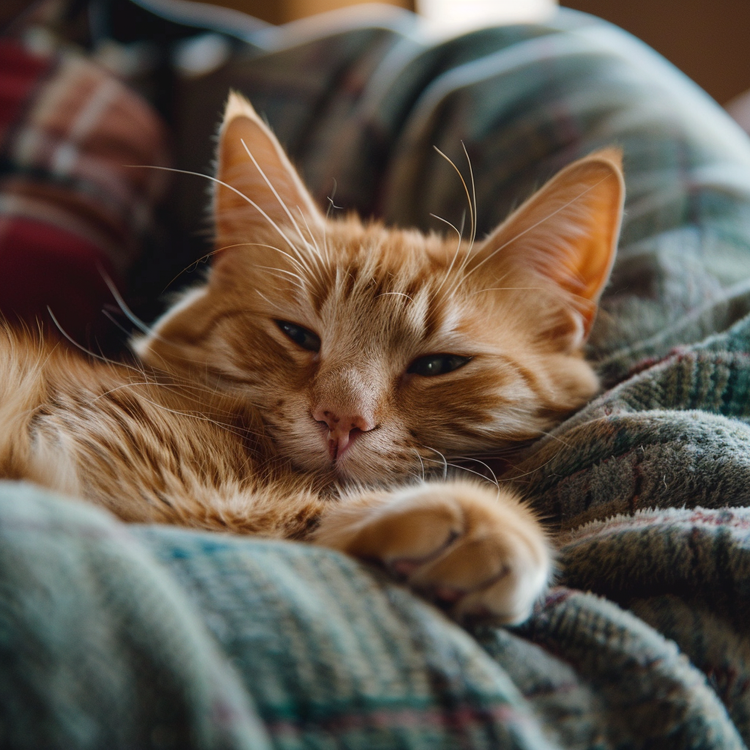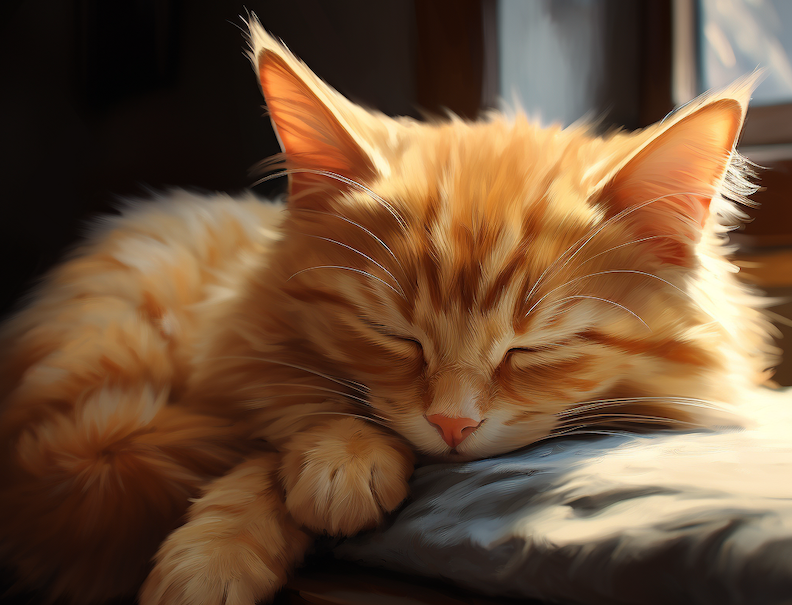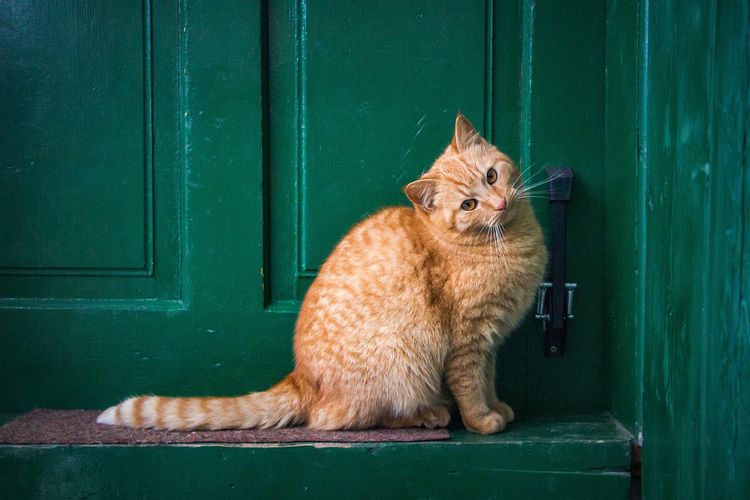Dealing with Separation Anxiety in Cats
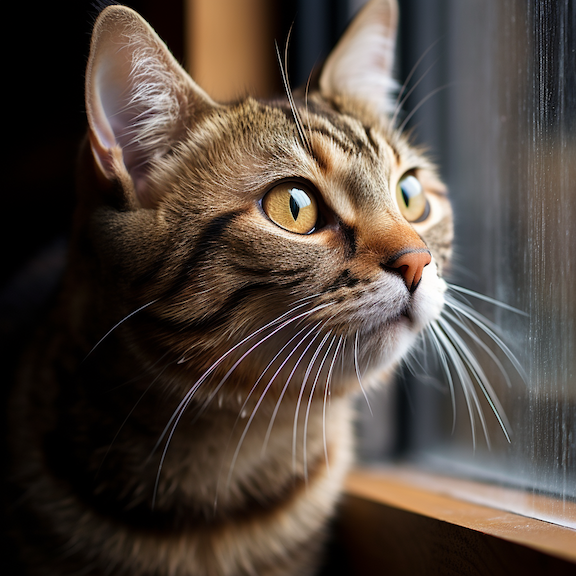
Table of Contents
- Understanding Separation Anxiety in Cats
- Signs of Separation Anxiety in Cats
- Effective Strategies for Managing Separation Anxiety
- Alternative Therapies for Anxiety Management
- Homeopathic Products Suggestions
- Preventative Measures
Cat Separation Anxiety Unveiled
Separation anxiety is not exclusive to dogs; many cats also experience distress when separated from their human caregivers. Common signs of separation anxiety in cats include excessive vocalization, destructive behavior, inappropriate elimination, and clinginess. In this blog post, we will explore effective strategies for addressing and alleviating separation anxiety in cats, helping them feel more secure and content when left alone.
Understanding Separation Anxiety in Cats
Separation anxiety in cats is characterized by extreme distress and anxiety when their human caregivers are absent. This can be triggered by various factors, such as changes in routine, a history of abandonment or rehoming, or a strong attachment to a specific person. Recognizing the signs of separation anxiety is crucial for identifying and addressing the issue. By understanding the underlying causes and behaviors associated with separation anxiety, cat owners can provide targeted support and help their feline companions feel more at ease.
- Extreme distress and anxiety when separated from human caregivers.
- Triggers may include changes in routine, history of abandonment or rehoming, or strong attachment to a specific person.
- Recognizing signs of separation anxiety is crucial for effective intervention.
Signs of Separation Anxiety in Cats
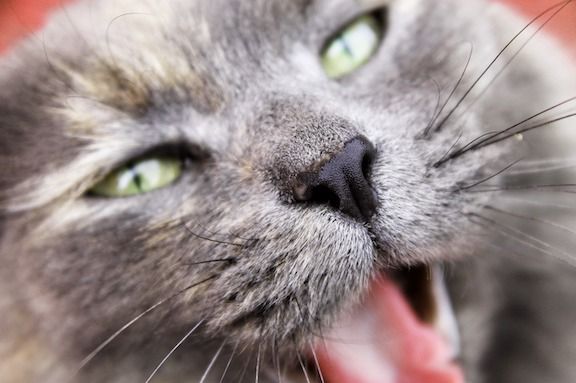
Cats with separation anxiety may exhibit a range of behaviors that signal their distress and unease. Excessive vocalization, such as constant meowing or yowling, is a common sign. They may engage in destructive behavior, such as scratching furniture or chewing on objects, as a way to cope with their anxiety. Inappropriate elimination, where cats urinate or defecate outside the litter box, is another telltale sign. Additionally, some cats may become withdrawn, clingy, or exhibit changes in appetite when faced with separation anxiety. Being aware of these signs allows cat owners to identify the issue and take appropriate steps to help their cats feel more secure.
Effective Strategies for Managing Separation Anxiety
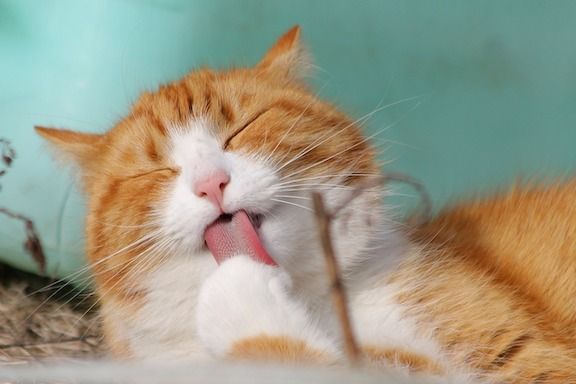
1. Gradual Desensitization:
Gradual desensitization involves slowly acclimating the cat to being alone for increasing periods of time. Start with short departures and gradually increase the duration as your cat becomes more comfortable. Creating a safe space for your cat, filled with familiar objects that carry your scent, can provide them with a sense of security during your absence. This approach helps reduce anxiety by allowing the cat to develop confidence and positive associations with being alone.
2. Environmental Enrichment:
Providing environmental enrichment can help alleviate separation anxiety in cats. Interactive toys, puzzle feeders, and treat-dispensing toys can keep cats mentally stimulated and distracted in their owner's absence. Vertical spaces, such as cat trees or window perches, offer opportunities for exploration and observation, fulfilling their natural instincts. A stimulating environment helps alleviate boredom and provides a sense of security and engagement for the cat.
3. Scent Association and Positive Reinforcement:
Using synthetic feline facial pheromone products, such as Feliway®, can create a calming environment and reduce anxiety in cats. These products mimic natural pheromones that cats release when they feel safe and secure. Positive reinforcement is also essential in managing separation anxiety. Rewarding your cat with treats or playtime when they display calm behavior or cope well with your departures reinforces positive associations and builds their confidence.
4. Establishing Predictable Routines:
Cats thrive on routine, and establishing a consistent schedule can help reduce anxiety associated with unpredictable departures. Stick to a regular feeding schedule, playtime sessions, and alone time to create a sense of stability. Providing distractions, such as interactive play or puzzle toys, before leaving can help redirect their focus and alleviate anxiety during your departure.
Alternative Therapies for Anxiety Management
Alternative therapies, while not a substitute for professional veterinary advice, can offer additional avenues for managing separation anxiety. Some of the alternative approaches include:
- Homeopathy and Herbal Remedies: Some natural remedies claim to reduce anxiety in pets. Always consult your vet before introducing any new substance into your cat’s regimen.
- Music Therapy: Specialized pet music playlists are designed to calm pets and can be played when you're not home.
- Massage and Physical Touch: Regularly massaging your cat can create a calming bond and reduce anxiety. Some cats also respond well to weighted blankets designed for pets.
Homeopathic Products Suggestions
Explore products to ease your cat's separation anxiety and enhance their well-being during alone time.

Bach RESCUE REMEDY PET Dropper 20mL
- Natural Stress Relief
- Homeopathic Flower Essence
- Separation Stress Solution
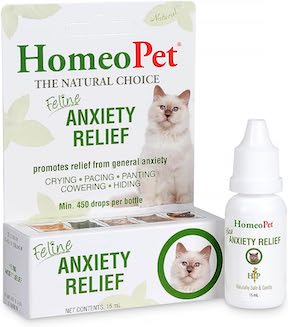
HomeoPet Feline Anxiety Relief, Stress and Anxiety Support for Cats
- Targets Cat Anxiety
- Created by Veterinarians
- Homeopathic
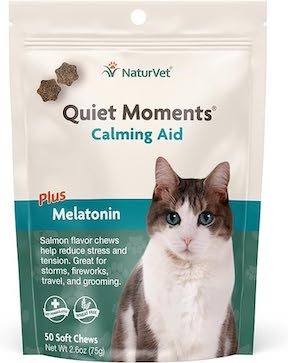
NaturVet Quiet Moments Calming Aid Cat Supplement Plus Melatonin
- High-Quality Anxiety Relief
- Melatonin-Infused
- Vitamin-Enhanced

Charlie & Buddy Hеmp Оil Cats
- Anxiety Relief
- Pain & Aches Alleviation
- Promotes Restful Sleep
- Mood Booster
- Omega 3, 6, 9 Included
- Vitamin E Infused
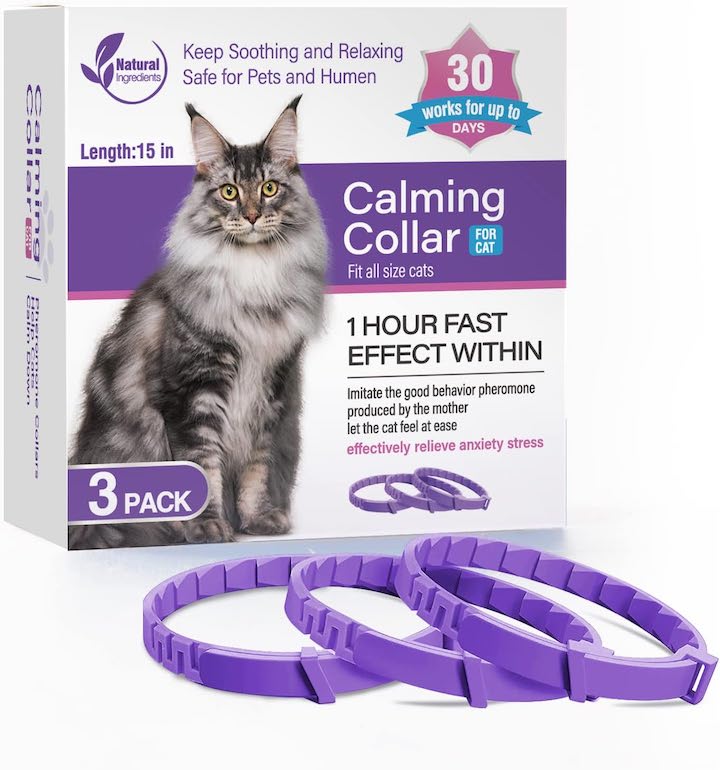
3 Pack Calming Collar Efficient Relieve Reduce Anxiety Stress
- Plant Essential Oils
- Waterproof Design
- Hypoallergenic Material
Preventative Measures
Taking steps to prevent the onset of separation anxiety can be as important as treating it. Some preventative measures include:
- Early Socialization: Socializing kittens from a young age can help them become more adaptable and less prone to anxiety.
- Structured Independence: Encourage independent play and relaxation from a young age to foster confidence and comfort when alone.
- Multi-Cat Households: Having more than one cat can sometimes alleviate separation anxiety symptoms, although this isn't guaranteed and depends on the personalities of the cats involved.
Final thoughts:
Separation anxiety in cats can be distressing for both the cat and their human caregivers, but with patience and understanding, it can be managed effectively. By implementing gradual desensitization techniques, providing environmental enrichment, using scent association and positive reinforcement, and establishing predictable routines, you can help your cat feel more secure and content when left alone. Remember to observe your cat's behaviors, tailor the strategies to their individual needs, and seek professional advice if needed. With your support and care, your cat can overcome separation anxiety and thrive in a calm and comfortable environment.
Frequently Asked Questions (FAQs)
How can I tell if my cat has separation anxiety?
Signs of separation anxiety in cats include excessive vocalization (constant meowing or yowling), destructive behavior (scratching furniture or chewing on objects), inappropriate elimination (urinating or defecating outside the litter box), and behavioral changes like withdrawal or clinginess. These signs usually appear when the cat is separated from their human caregivers.
What triggers separation anxiety in cats?
Separation anxiety in cats can be triggered by various factors. These can include changes in routine, a history of abandonment or rehoming, or a strong attachment to a specific person. The trigger can be different for each cat, and it may require some investigative work to determine the cause in your specific situation.
Can cats outgrow separation anxiety?
Cats may or may not outgrow separation anxiety, depending on the individual cat and the effectiveness of the interventions applied. With the proper combination of gradual desensitization, environmental enrichment, scent association, and positive reinforcement, many cats can improve over time. However, for some cats, separation anxiety can be a lifelong condition that requires ongoing management.
Are there any medications for treating separation anxiety in cats?
Medication can be an option for treating severe cases of separation anxiety, but it is generally considered a last resort after behavioral interventions have failed. If you're considering medication, consult with your veterinarian for a comprehensive treatment plan tailored to your cat's needs.
When should I seek professional help for my cat's separation anxiety?
If you have tried implementing the strategies discussed in this blog post and see no improvement, or if your cat's anxiety is severe, it may be time to consult with a veterinarian or a veterinary behaviorist. They can provide a more thorough diagnosis and tailored treatment plan, which may include medication or more advanced behavioral techniques.
